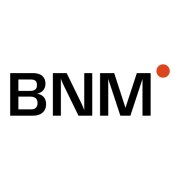Best Project Finance Lawyers in Republic of Lithuania
Share your needs with us, get contacted by law firms.
Free. Takes 2 min.
Or refine your search by selecting a city:
List of the best lawyers in Republic of Lithuania
About Project Finance Law in Republic of Lithuania
Project finance is a specialized area of law in the Republic of Lithuania that primarily deals with the legal and financial structuring of large infrastructure projects or capital-intensive undertakings, such as energy plants, transportation networks, public-private partnerships, and real estate developments. Project finance in Lithuania often involves a combination of equity and debt, provided by a variety of lenders and investors, where the project's cash flow is the sole or primary source for repaying these obligations. This legal field incorporates elements of corporate, banking, contract, and security law, and is influenced by Lithuanian legislation as well as relevant European Union directives and regulations.
Why You May Need a Lawyer
Engaging in project finance in Lithuania involves a complex interplay of laws, regulations, and contractual obligations. You may need the expertise of a lawyer in situations such as:
- Structuring a new infrastructure or energy project
- Negotiating financing agreements with banks or investors
- Conducting due diligence on legal risks and regulatory compliance
- Drafting and reviewing contracts between sponsors, contractors, and public entities
- Obtaining permits and navigating approval processes
- Handling cross-border aspects for foreign investments or multinational partners
- Resolving disputes or claims under project agreements
- Ensuring compliance with environmental, labor, and construction regulations
- Mitigating currency, interest rate, or political risks
- Managing issues if a project encounters financial difficulties or restructuring
because the stakes are often high and the risks complex, legal guidance can safeguard investments and ensure a smoother project execution.
Local Laws Overview
Project finance transactions in Lithuania are governed by a range of local and EU laws. Key aspects include:
- Civil Code of Lithuania - Governs contractual relations and the formation of agreements
- Law on Financial Institutions - Sets out requirements for banks and financial service providers
- Public Procurement Law - Governs PPPs (public-private partnerships) and government contracts for infrastructure
- Environmental Protection Law - Regulates environmental permits and compliance for new projects
- Construction Law - Provides the framework for construction permits, safety, and standards
- Securities Law - Relevant for financing through bond issuance or capital markets
- EU Directives on state aid, competition, and environmental impact assessments also impact project finance structures
Additionally, Lithuania’s legal environment is harmonized with European Union standards, which is critical for foreign investors and cross-border project financings.
Frequently Asked Questions
What is project finance and how does it differ from traditional financing?
Project finance is structured so that the project's cash flow, rather than the sponsor's overall assets, is the main source of loan repayment. Legal title to the project assets is often held by a special purpose vehicle created solely for the project. This structure isolates the project from overall company risk, unlike traditional financing where a borrower's balance sheet is key.
Who are the main parties involved in a typical Lithuanian project finance deal?
Main parties include project sponsors, a special purpose vehicle, lenders (banks, international institutions), contractors, suppliers, sometimes government authorities for permits or concessions, and off-takers (purchasers of the project's output).
What types of projects are commonly financed through project finance in Lithuania?
Typical sectors are energy (wind, solar, biomass, LNG terminals), transport infrastructure (roads, railways, airports), utilities, and large-scale industrial or real estate developments.
Is foreign investment allowed in Lithuanian project finance?
Yes, Lithuania encourages foreign investment and treats foreign investors on equal terms with local investors. Some sensitive sectors may require additional approvals.
How are risks allocated and mitigated in Lithuanian project finance?
Risks are typically allocated to the parties best positioned to manage them, through detailed contracts. Common tools include insurance, guarantees, escrow accounts, and step-in rights for lenders.
What legal documents are vital in a Lithuanian project finance transaction?
Key documents include loan agreements, security documents (pledges, mortgages), shareholder agreements, EPC (engineering, procurement, construction) contracts, off-take agreements, and permits or licenses.
How long does it take to set up and finance a major project in Lithuania?
Timelines vary based on the project's complexity, but preparing legal documentation and obtaining permits can take several months to a year or more.
What security can lenders take for project finance loans in Lithuania?
Security may include pledges over shares, mortgages on land or installations, assignments of project agreements, and control of project bank accounts.
Are there incentives for green or sustainable project finance in Lithuania?
Yes, several government and EU programs grant incentives, subsidies, or preferential terms for renewable energy and sustainable infrastructure projects in Lithuania.
What happens if a project runs into financial difficulty?
Restructuring options include negotiations with lenders, changes in ownership, or, if necessary, formal insolvency proceedings under Lithuanian law. Step-in rights may allow lenders to take control of the project.
Additional Resources
If you need more information or support regarding project finance in Lithuania, consider contacting:
- Ministry of Finance of the Republic of Lithuania
- State Investment Management Agency
- Invest Lithuania (Investuok Lietuvoje) - For investor support and guidance
- Bank of Lithuania - For matters related to financial services regulation
- Lithuanian Project Management Association
- Local and international law firms specializing in project finance
These organizations offer guidance, publications, official forms, and legal updates relevant to project finance activities.
Next Steps
If you are considering a project finance transaction or need legal assistance in this field in Lithuania:
- Clearly define your project scope and goals
- Identify necessary permits, approvals, and regulatory requirements early on
- Prepare detailed documentation and business plans for potential lenders or investors
- Consult with a legal professional experienced in Lithuanian and cross-border project finance
- Engage with relevant governmental or industry bodies to clarify incentives, partnerships, or compliance matters
- Read relevant regulations and guidelines provided by local authorities or the EU
Taking these proactive steps can help you avoid legal pitfalls and maximize the chances of a successful project launch and operation in Lithuania.
Lawzana helps you find the best lawyers and law firms in Republic of Lithuania through a curated and pre-screened list of qualified legal professionals. Our platform offers rankings and detailed profiles of attorneys and law firms, allowing you to compare based on practice areas, including Project Finance, experience, and client feedback.
Each profile includes a description of the firm's areas of practice, client reviews, team members and partners, year of establishment, spoken languages, office locations, contact information, social media presence, and any published articles or resources. Most firms on our platform speak English and are experienced in both local and international legal matters.
Get a quote from top-rated law firms in Republic of Lithuania — quickly, securely, and without unnecessary hassle.
Disclaimer:
The information provided on this page is for general informational purposes only and does not constitute legal advice. While we strive to ensure the accuracy and relevance of the content, legal information may change over time, and interpretations of the law can vary. You should always consult with a qualified legal professional for advice specific to your situation.
We disclaim all liability for actions taken or not taken based on the content of this page. If you believe any information is incorrect or outdated, please contact us, and we will review and update it where appropriate.
Browse project finance law firms by city in Republic of Lithuania
Refine your search by selecting a city.















